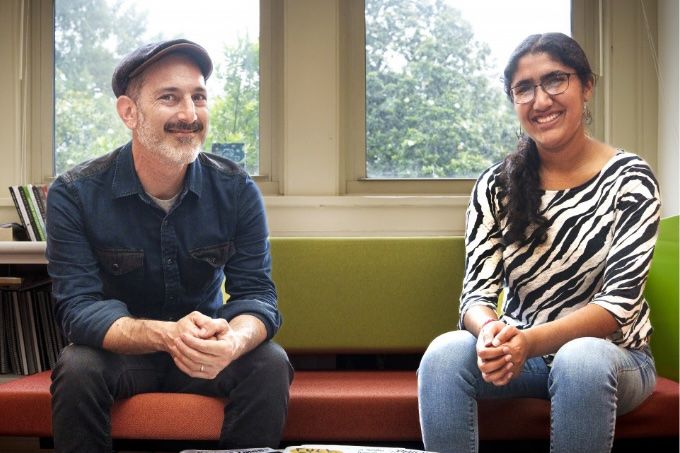Overview
Adam Rosenblatt is Professor of the Practice in International Comparative Studies and Cultural Anthropology at Duke University and the Faculty Director of the Duke Human Rights Center. An ethnographer interested in human rights, the ethics of care, and our ongoing ties to the dead, Rosenblatt is the author of Digging for the Disappeared: Forensic Science after Atrocity (Stanford University Press, 2015), a winner of Choice's 2016 Outstanding Academic Title award, and Cemetery Citizens: Reclaiming the Past and Working for Justice in American Burial Grounds (2024). Cemetery Citizens is an ethnography of grassroots groups working to preserve and honor places of the marginalized dead. The book largely focuses on ongoing reclamation efforts in African American burial grounds, including Durham's own Geer Cemetery. It uses sketches and poetic inquiry to “draw out” the voices and active, embodied presence of descendants, grassroots activists and memory-workers.
Adam is a cartoonist and graduate of the year-long certificate program at the Sequential Artists Workshop. His comics work includes serving as a graphic ethnographer for a team of anthropologists working in northern Uganda, the serialized comic A Little Golden Promise, and various contributions to anthologies and advocacy zines. He is also working on a project about using comics as a teaching method in liberal arts courses. You can see some Adam's comics, collages, and drawings on Instagram at @researchcartoonist.
In Durham, Adam serves on the Board of Directors of the Friends of Geer Cemetery, teaches community-engaged courses, and is the co-founder of the Durham Black Burial Grounds Collaboratory, an academic-community-cemetery partnership funded by the Duke Endowment.
Adam has published additional research about the politics of autism, civic engagement and teaching, and human rights activism in Disability Studies Quarterly, Human Rights Quarterly, The Applied Anthropologist, Hybrid Pedagogy and other journals. He has been consulted by the United Nations and other policy-makers on questions of missing persons and mass graves.




